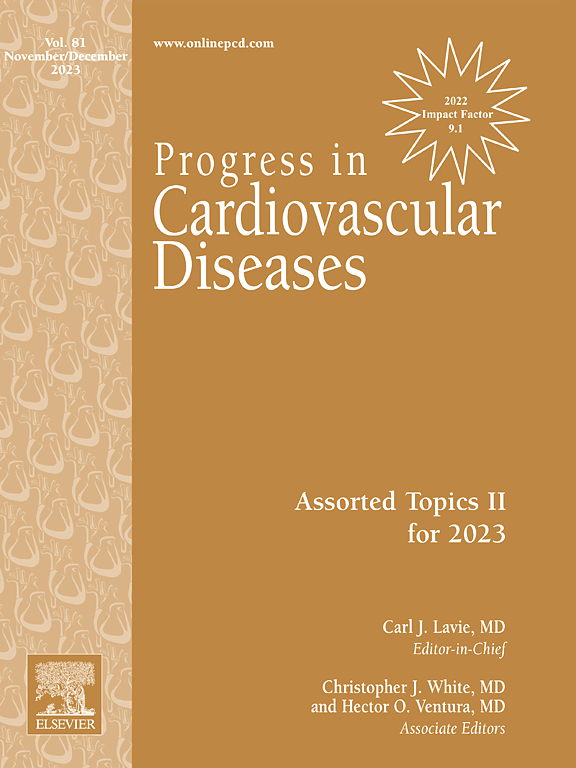Anti-consumption agents: Tirzepatide and semaglutide for treating obesity-related diseases and addictions, and improving life expectancy
IF 7.6
2区 医学
Q1 CARDIAC & CARDIOVASCULAR SYSTEMS
引用次数: 0
Abstract
American culture encourages overconsumption, fueled by ubiquitous availability and pervasive marketing of ultra-processed foods and other addictive substances. This chronic overindulgence has contributed to rising rates of obesity, type 2 diabetes (T2D), substance abuse, mental health disorders and premature mortality. Glucose-like peptide-1 agonists (GLP-1RAs) affect the brain's reward pathway that mediates addiction to foods and various other substances. Evolving data suggest that tirzepatide and semaglutide may be the first effective “anti-consumption” agents with potential applications in reducing food cravings, obesity, alcohol consumption, nicotine addiction, recreational drug use, and even uncontrollable shopping behaviors. Tirzepatide and semaglutide, unlike prior weight-loss drugs, are effective and relatively safe/well-tolerated medications that are associated with reduced risks for myocardial infarction, stroke, cardiovascular death, heart failure, progressive kidney and liver disease, obstructive sleep apnea, debilitating osteoarthritis, polycystic ovarian syndrome, neurodegenerative disease and premature mortality. Observational studies show that GLP-1RAs are associated with spontaneous nonvolitional reductions in use of alcohol, nicotine, and recreational drugs. Because obesity and substance abuse are so prevalent in the United States, GLP-1RA drugs may be uniquely helpful in addressing overconsumption and addiction issues thereby improving overall health and life expectancy.
抗消耗药物:替西帕肽和西马鲁肽用于治疗肥胖相关疾病和成瘾,并提高预期寿命。
美国文化鼓励过度消费,这是由于超加工食品和其他成瘾物质的无处不在和无处不在的营销所推动的。这种长期的过度放纵导致了肥胖率、2型糖尿病(T2D)、药物滥用、精神健康障碍和过早死亡的上升。葡萄糖样肽-1激动剂(GLP-1RAs)影响大脑的奖励通路,介导对食物和各种其他物质的成瘾。不断发展的数据表明,替西帕肽和西马鲁肽可能是第一批有效的“抗消费”药物,在减少对食物的渴望、肥胖、饮酒、尼古丁成瘾、娱乐性药物使用,甚至无法控制的购物行为方面具有潜在的应用前景。与先前的减肥药不同,替西帕肽和西马鲁肽是有效且相对安全/耐受性良好的药物,可降低心肌梗死、中风、心血管死亡、心力衰竭、进行性肾脏和肝脏疾病、阻塞性睡眠呼吸暂停、衰弱性骨关节炎、多囊卵巢综合征、神经退行性疾病和过早死亡的风险。观察性研究表明,GLP-1RAs与酒精、尼古丁和娱乐性药物使用的自发非自愿性减少有关。由于肥胖和药物滥用在美国如此普遍,GLP-1RA药物可能对解决过度消费和成瘾问题有独特的帮助,从而改善整体健康和预期寿命。
本文章由计算机程序翻译,如有差异,请以英文原文为准。
求助全文
约1分钟内获得全文
求助全文
来源期刊

Progress in cardiovascular diseases
医学-心血管系统
CiteScore
10.90
自引率
6.60%
发文量
98
审稿时长
7 days
期刊介绍:
Progress in Cardiovascular Diseases provides comprehensive coverage of a single topic related to heart and circulatory disorders in each issue. Some issues include special articles, definitive reviews that capture the state of the art in the management of particular clinical problems in cardiology.
 求助内容:
求助内容: 应助结果提醒方式:
应助结果提醒方式:


